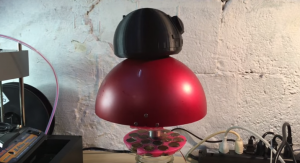
The best electronic design blogs
Budding electrical engineers are both analytical and creative. They are constantly looking for new ways to expand on their electronic design abilities through taking on new projects.
There are numerous areas on the web which discuss and provide resources on this topic. On these sites engineers and hobbyists discuss potential projects, critique one another and showcase what they have created themselves. Here are the electronic design blogs and sites which we think provide the best hacks, tips, projects and ideas for the budding electrical engineer. How many can you master?
This site is run by Norwegian enthusiast Øyvind Nydal Dahl and teaches visitor how to build their own hardware gadgets, even if they’ve no experience of this before. The tutorials are both detailed and simple to follow. The site tries to stay away from dense theory and stick with teaching users the hands on techniques.
The tutorials range from more serious advice topics, such as discussing the ways in which 12V can break your circuit, to more fun topics, such as how to build the new robot from Star Wars.
Electronics Lab is more of a community based website – it describes itself as ‘the electronic hobbyist corner’. Visitors will find circuits with detailed descriptions, diagrams, electronics articles, links and downloads. Users are invited to comment on any of the articles that they encounter and discussion is greatly encouraged.
This site is more geared towards the electronic engineer with slightly more experience. Specs, schematics, parts lists and jumper settings are provided, but a knowledge basis would be required to apply this information to a physical project. A good example of this is their ‘Voice Changer’ project which contains all of this information, but little instruction.
3. Hack-A-Day
Hackaday provide pretty much what you’d expect – ‘Fresh Hacks Every Day’ via scouring the internet for the latest movements in the electrical engineering world.
Hackaday take umbrage with the way in which the word ‘hacking’ is often perceived by the general public. They describe hacking as an art form which simply uses something in a way which it was not originally intended. They view it as creative, technical and clever, and are proud to call themselves hackers – or at least their own take on the term.
Some of their latest hacks include modifying a 3D Da Vinci printer and how to rapidly charge an iPhone. The information on this site is fast paced and at the edge of where technology is moving. Users are encouraged to upload their own projects and engage with the free exchange of information. This is an exciting community for a budding electrical engineer to become a part of.
Intractables offer hacks, cheats and tricks on lots of different topics. They’ve got sections on everything from food to crafts and costumes. However their technology section is not to be missed if you are a budding electronics enthusiast. You can see some of the coolest projects shared on the internet. Like some of the other sites, Instructables are keen upon the idea of sharing the things you’ve made with others. Their step-by-step guides are some of the best out there. They are extremely easy to follow and often feature videos to make the process even easier. We particularly liked this LED plane project. It could be a particularly good first experiment for a keen beginner!
5. DIY Hacking
DIY Hacking is another really useful online tool. They are a non-profit organisation who want to promote ‘maker’ culture. This features a three step process – ‘learn’, ‘engage’ and ‘know’ which are intended to help the beginner learn the basics and then progress onto more advanced projects. The site features ebooks, DIY tutorials, and a section where users can upload their own contributions. DIY Hacking want all their users to be able to get to this stage, and offer prolific support to the beginner ‘maker’ to help them to get there.
Their reasons for maintaining the site are forward looking; they believe that hardware development should be democratised just like software in the near future.
So there you have our top online resources for the budding electronic design enthusiast. These electronic design blogs are varied and informative and there’s a wealth of knowledge to be gained from them. How many of these projects will you master? And how many concepts will you create for yourself?








Leave a Reply